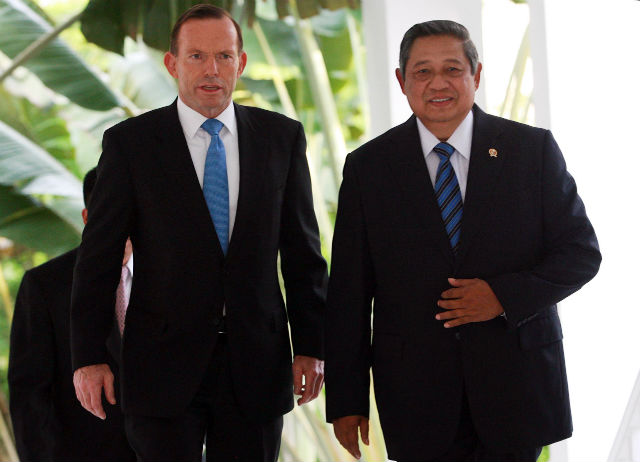SUMMARY
This is AI generated summarization, which may have errors. For context, always refer to the full article.

JAKARTA, Indonesia – Indonesian President Susilo Bambang Yudhoyono was forced on Thursday, July 31, to respond to speculations of his involvement in a multi-country banknote printing corruption case that made headlines again this week following the release of an Australian gag order on the case.
The case concerns allegations of multi-million-dollar briberies made by Reserve Bank of Australia (RBA) subsidiaries, Securency and Note Printing Australia, in the early 2000s to secure contracts for the supply of Australian-style polymer bank notes to the governments of Malaysia, Indonesia, Vietnam, and other countries.
On June 19, an Australian censorship order on the case was issued to “prevent damage to Australia’s international relations that may be caused by the publication of material that may damage the reputations of specified individuals who are not the subject of charges in these proceedings.”
These specified individuals include current or former heads of state and financial officials of Malaysia, Indonesia, and Vietnam. Yudhoyono and former Indonesian President Megawati Sukarnoputri were among the 17 names specifically named in the court order.
However, the censorship order was released by WikiLeaks on July 29, saying it was “not just gagging the Australian press, it is blindfolding the Australian public.” (READ: WikiLeaks releases Australian gag order on corruption case)
The censorship order has been construed to mean that Yudhoyono and Megawati were in some way involved in the case.
Clarification demanded
During a press conference in his private residence at Puri Cikeas, Bogor, on several issues on Thursday, Yudhoyono said the accusation was “hurting” him and demanded Australia to immediately “deliver a clear statement” clarifying his and Megawati’s reputation.
“Australia, please talk about WikiLeaks. Don’t stay silent, because silence creates suspicion,” Yudhoyono said.
Tjahjo Kumolo, a senior politician in Megawati’s party, the Indonesian Democratic Party of Struggle (PDI-P), came to the former president’s defense. “One thing to remember is that Megawati was not Indonesia’s president at the time. She did not know anything regarding the bank note printing,” Tjahjo said in a statement.
The Australian government, through its embassy in Indonesia, released a statement later on Thursday, clarifying that Yudhoyono and Megawati are not the subject of the Securency proceedings.
“The [Australian] Government considers that the suppression orders remain the best means for protecting the senior political figures from the risk of unwarranted innuendo,” the statement said.
“This is a long-running, complicated case which names a large number of individuals. The naming of such figures in the orders does not imply wrongdoing on their part.”
It added that the Australian government “takes the breach of the suppression orders extremely seriously and we are referring it to the police.”
Cooperate in investigation
In Indonesia, Securency reportedly offered two officials of Bank Indonesia, the country’s central bank, $1.3 million in “commissions” each to win a contract for the firm in 1999. The Sydney Morning Herald reported that Securency won a $50-million contract to print IDR100,000 ($8.60) bank notes for Bank Indonesia that year.
On Thursday, Bank Indonesia senior deputy governor Mirza Adityaswara confirmed it printed 550,000 IDR100,000 bank notes in Australia that year to anticipate the Y2k bug, known as the Millennium Bug, that was projected to create havoc in computer networks around the world at the beginning of the year 2000.
“We did not know what will happen at that time,” Mirza said, adding that Bank Indonesia expected a high demand for bank notes and therefore decided to print overseas. However, he did not explain why the central bank decided to print in Australia.
Yudhoyono also asked Australia to disclose any Indonesians involved in the bribery case, and suggested that Australia cooperate with Indonesia’s anti-graft agency to investigate the case.
Bank Indonesia and Indonesia’s powerful Corruption Eradication Commission (KPK) both said in 2010 they would launch probes into the case and asked for the Australian Federal Police’s cooperation. However, no prosecution has taken place in Indonesia. – with reports from Kumara Santi/Rappler.com
Add a comment
How does this make you feel?
There are no comments yet. Add your comment to start the conversation.